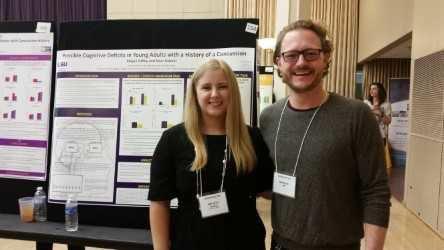I’ve noticed something very unusual in the past semester. So many students are trying to get involved on campus, but with little success.
As co-president of a club on campus, this frightens me. I often encourage students to join not only my organization, but any other club that sparks their interest.
However, since many leadership members graduated while COVID-19 temporarily shut down many clubs, campus involvement just isn’t the same anymore. Some clubs lack experienced members to lead activities, and others have disbanded forever.
If you’re having trouble finding the right organization for you on campus, either to make friends or to enhance your learning, consider a great involvement outlet that is often overlooked—undergraduate research.
Doing undergraduate research is one of the best ways to gain valuable knowledge and skills. According to LSU’s Discover Undergraduate Research Program, research allows you to “develop your personal and professional skills, such as problem-solving, critical thinking and perseverance.”
Research is an opportunity for you to challenge yourself by going the extra mile and honing in on something you’re interested in. It lets you explore career possibilities, boosts your applications to graduate schools, allows you to participate in real-world applications of your interests and leads to unparalleled letters of recommendation.
Unlike clubs with registration fees and dues, doing research doesn’t cost a penny. A substantial portion of the thousands of dollars you pay for your education goes toward funding on-campus research.
Not only is research free, you can often get paid to do it.
Depending on your financial aid, you might be eligible for the President’s Student Aid or Federal Work-Study programs, which will pay you to work in on-campus jobs, including in research positions.
Instead of spending hours doing menial tasks at a desk, you could earn the same wage helping a faculty member develop his or her projects.
If these options are not available, you could get paid directly by your professor if they’re being funded by the university or some other organization. These types of jobs are harder to find, but are a feasible option with a bit of searching and asking around.
Additionally, LSU Discover offers research project grants to fund student-led research. You are eligible twice during your college career for the grant, which covers wages up to $1500 a semester, and $2500 for the summer.
These grants are very competitive, with reason. Getting a grant as an undergraduate is impressive, especially on graduate school applications. Anyone could get it, especially if students applying from an underrepresented major or college, such as the College of Business.
Even if you don’t find a way to get paid for doing research, some professors offer course credit instead.
A good start is seeing if your desired department offers an “Independent Study” course in the schedule booklet. Many of these courses can fulfill elective requirements on your degree audit, so you can participate in research without adding extra time commitments to your course schedule.
If this sounds like something you’d want to do, here’s what you need to know:
Go to the Mentor Database to find faculty members seeking research assistants on ongoing projects. Don’t be afraid of cold emailing every professor listed under your subjects of interest—remember, you lose every opportunity you don’t take.
If you need help or advice, reach out to the LSU Discover Staff, or check online for tips on sending cold emails.
I understand that not everyone shares my enthusiasm for research. After all, I’m a Research Ambassador, a candidate of the Distinguished Undergraduate Research Program and an applicant for the Discover grant next semester.
Still, I believe that every student, not just the zealots like me, can benefit from undergraduate research.
It’s free, rewarding, challenging and a great way of getting involved and meeting new, smart people.
Every field is vastly different, so this advice is constrained by personal experiences and biases. Reach out to either a professor or Research Ambassador in the field of your interest.
Believe me, they’ll be happy to help you.
Samuel Camacho is a 21-year-old economics junior from Maracaibo, Venezuela.





